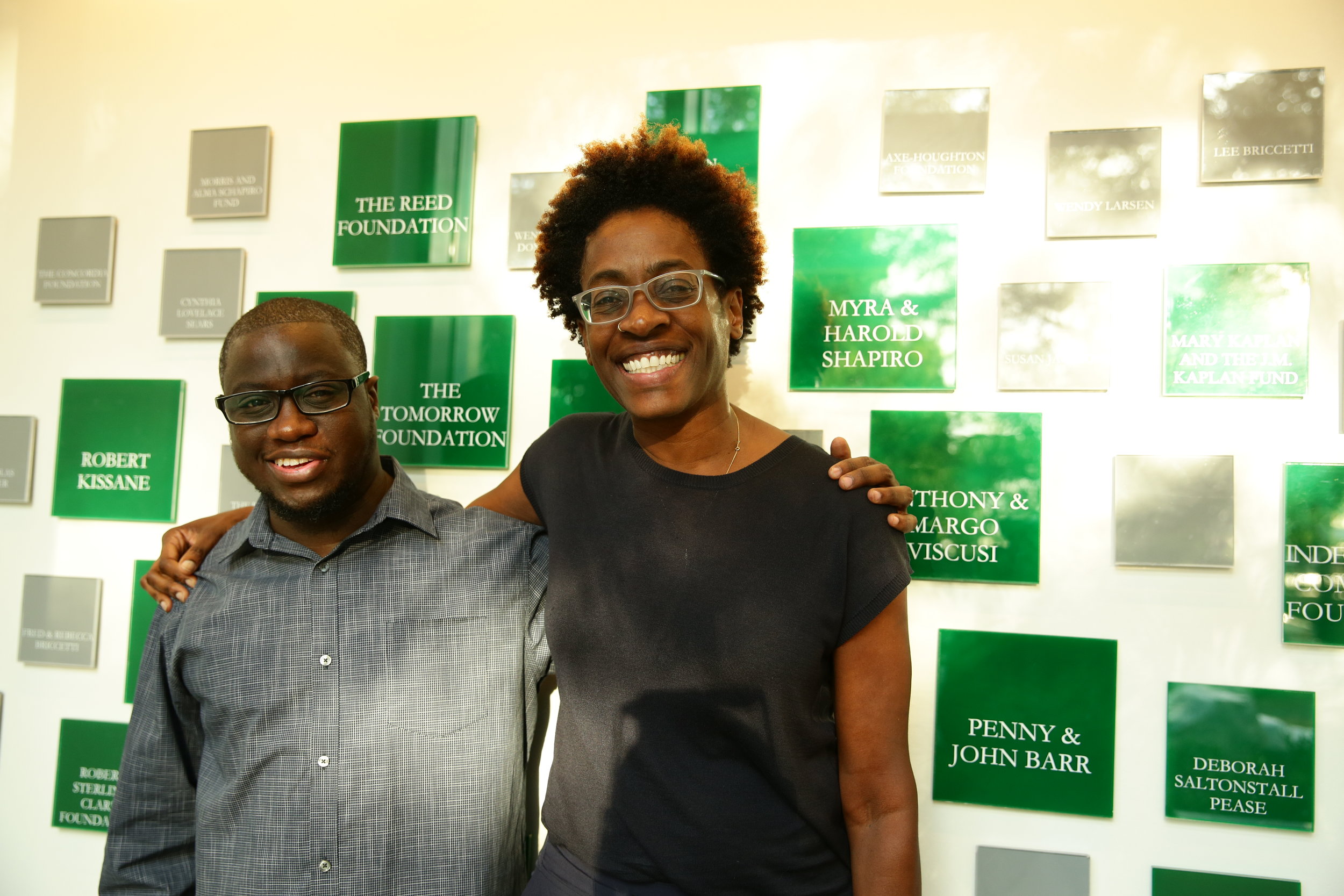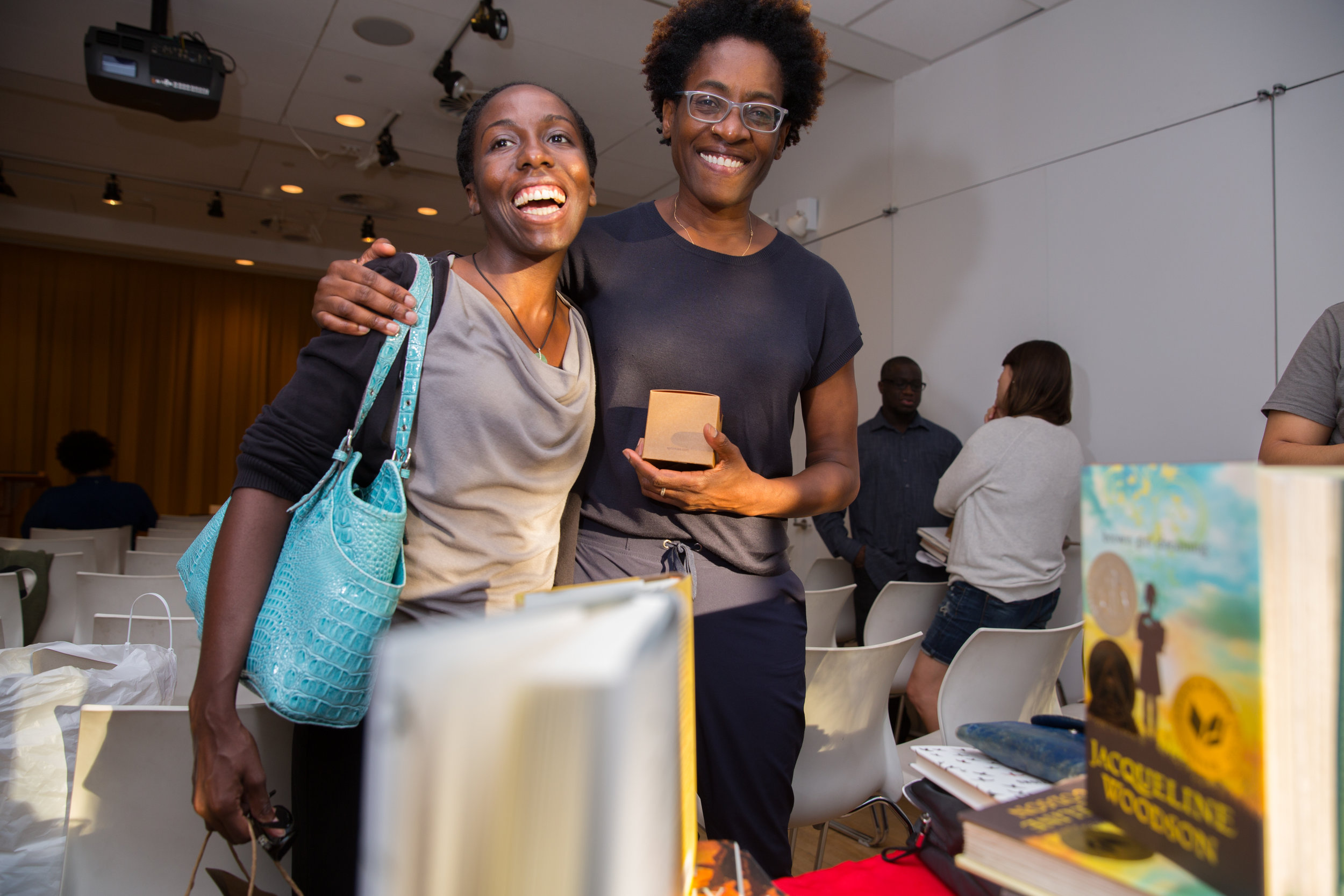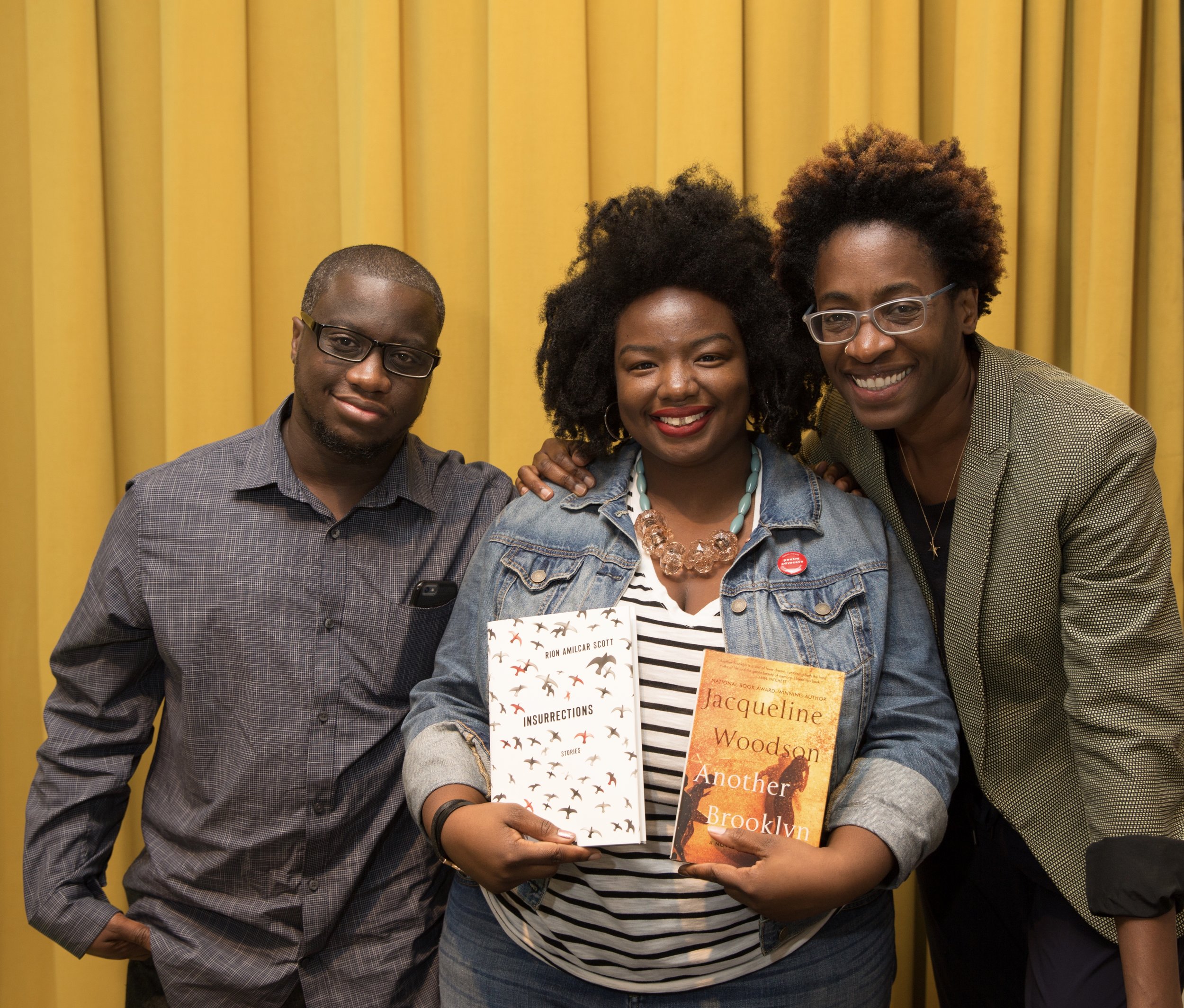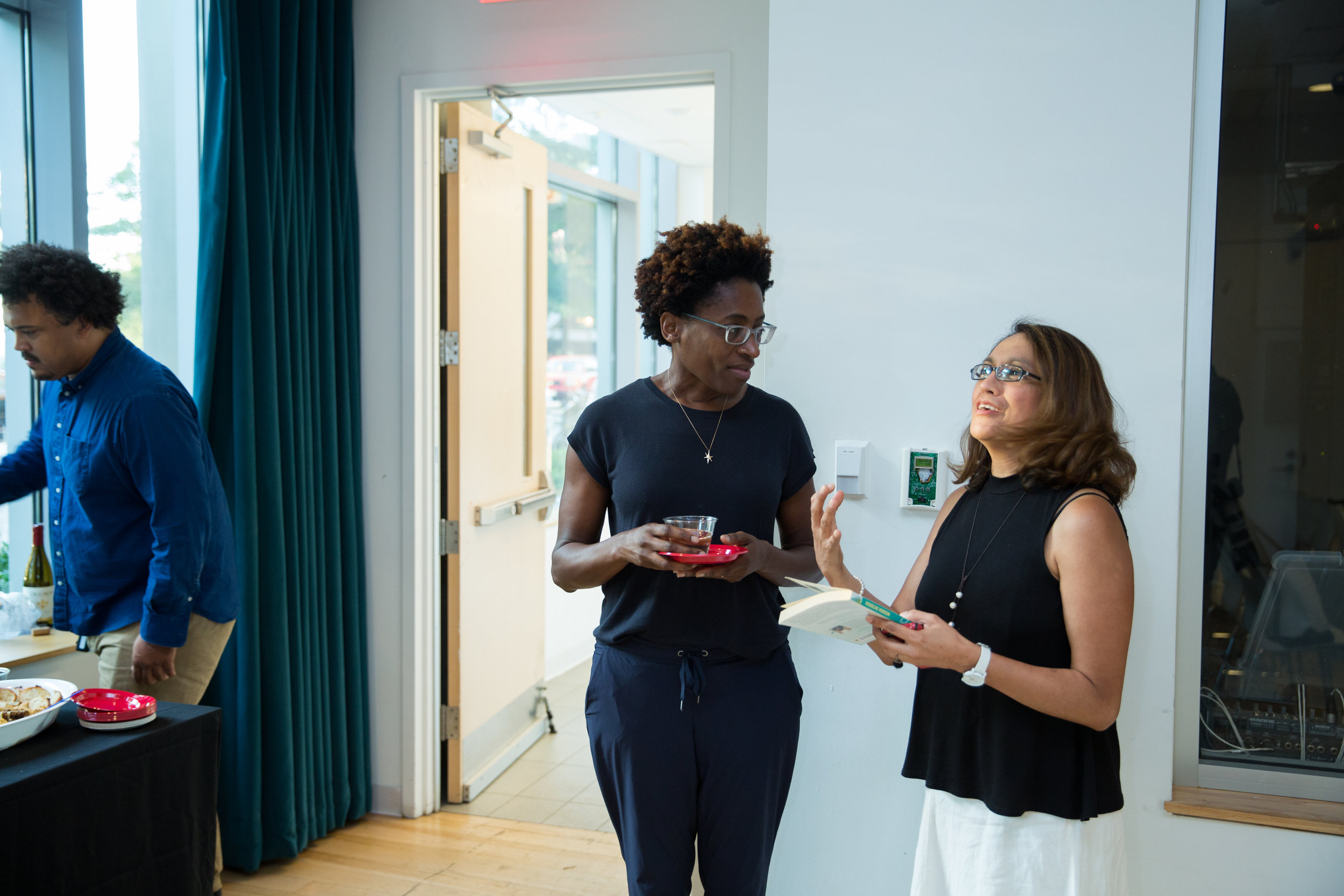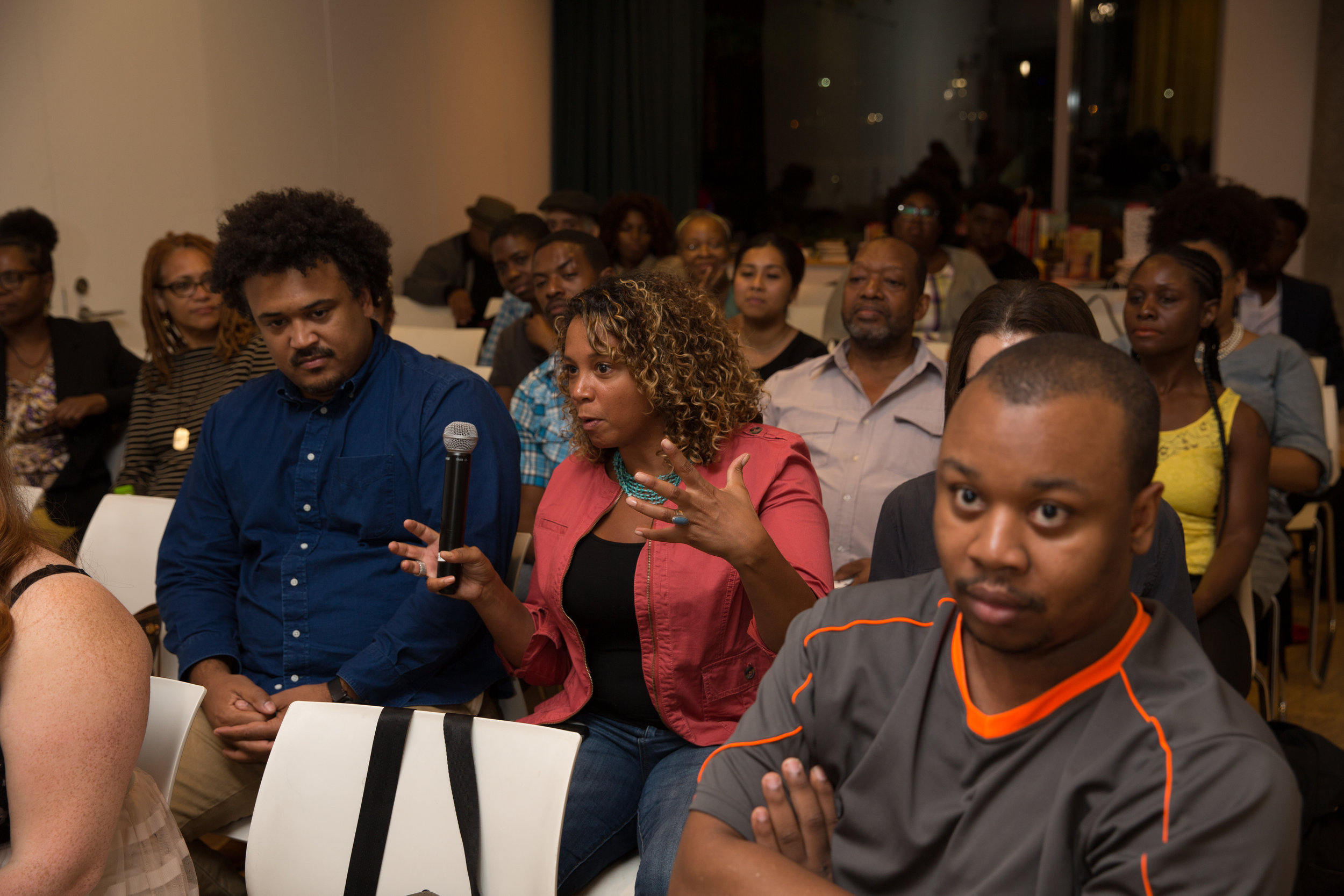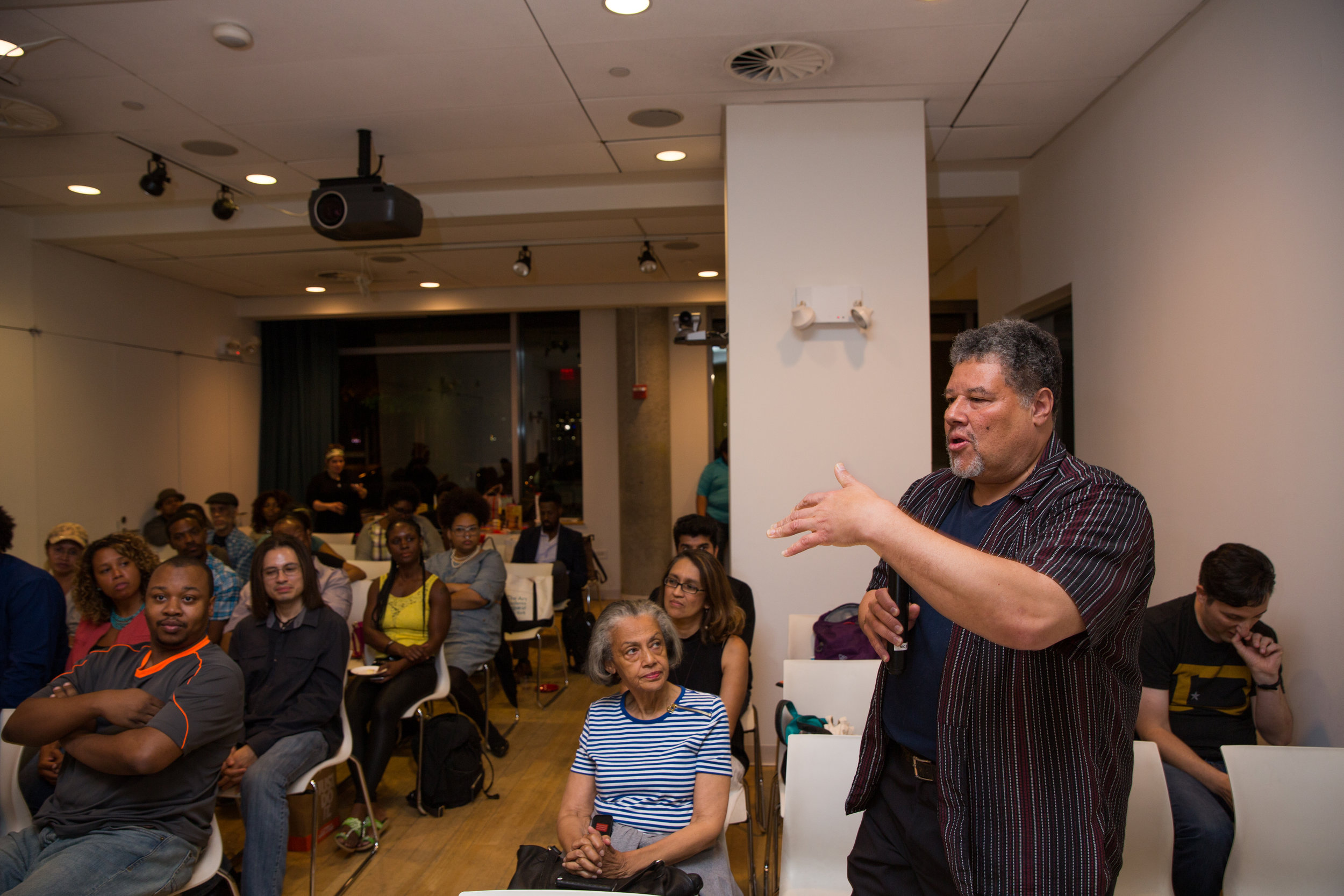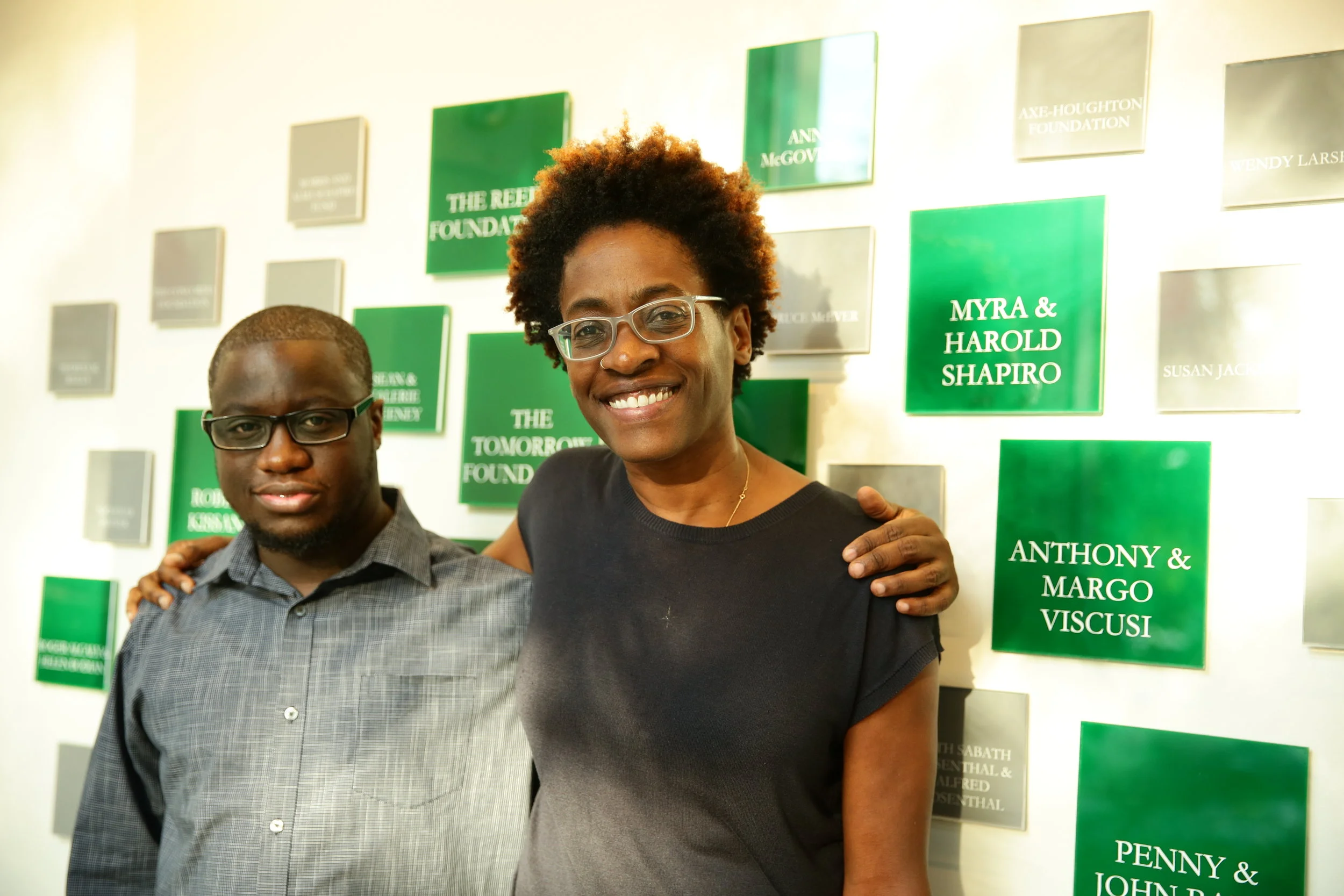Kweli hosted Rion Amilcar Scott in Conversation with Jacqueline Woodson at Poets House on September 15, 2016.
"And it's interesting in terms of thinking about writing, you know, you can just write and focus on one character and one thing that propels them through the narrative. But whenever I write, it is about the context of my character in the bigger world. And I think that comes from when I was young and always thinking of us in part - in terms of being part of that bigger world and that greater good.”
Jacqueline Woodson, August 2016 NPR Interview
Kweli’s new fiction editor, Tushar Rai, used the aforementioned quote to open up a discussion on context and nature vs. nurture for writers. “I’ve been here for 2 years,” Tushar said “and I find myself wondering if I would have written the same kind of stories if I were born in Brooklyn instead of Varanasi?”
JACQUELINE WOODSON: It’s a good question. If you know the story, I was born in Ohio and then I moved to Greenville, South Carolina. Then my family came to New York as part of the Great Migration. So it was always in a historical context and I was made very much aware of that historical context. I think that for people of color, that is usually the narrative.
For me, the stories that I’m not interested in are when people are just navel gazing and it is like 'I, I, I, . . . me, me, me. Here is me in my world.’ I don’t care. I want to know what your impact is on the world. I want to know [what] the history is that you’re living in, because we’re always living in a certain point in time. The time that we’re living in has an impact on our characters and the story we’re going to tell, if we let it. And I think having grown up as a person of color—being very aware of the white world, being very aware of economic advantages that someone has, being very aware of gender, all of these ways—as a writer I couldn’t just sit down and write about me. There was just no space in my life to navel gaze, and I think that my mom would have slapped the back of my head if I did. (audience laughter)
From a young age, we were taught about ourselves in that context of the bigger world and what are we going to do to be a part of that greater good. It wasn't ‘what are you going to grow up to do?’ It was ‘what are you going to grow up and change?’ For me, writing has always had this social justice element and this element about change because there has never been any time to do it any other way.
I think of writing as a privilege. It is not a luxury. We write because we have to write, because we have to tell these stories, because we have to create change and the way to create change is by telling these stories that people can see themselves inside of, or see themselves outside of and say, oh shoot, what am I going to do now? I’m thinking about the writers who have come before me. I’m thinking about Nikky Finney. I’m thinking about Audre Lorde. I’m thinking about James Baldwin. I’m thinking about Toni Morrison. I’m thinking about the people who have written because they needed to break down barriers and create access and create change.
RION AMILCAR SCOTT: Everything Jackie said. (audience laughter) I think that there is so much in the writing world that wants to disconnect you. In the writing world there is the aesthetic that we are all so individualized and we are all in these boxes. Sure we’re individuals. I may be different than the writers that came before me, with different interests and experiences. But we are all shaped by a historical context that we’ve seen only a piece of. There are so many factors that we don’t even understand. The way I’m waving my hand came from somewhere else. It didn’t start with me. Nothing started with me. I think that it is important to look at that historical context, interrogate it, to maybe alter the trajectory in some way.
